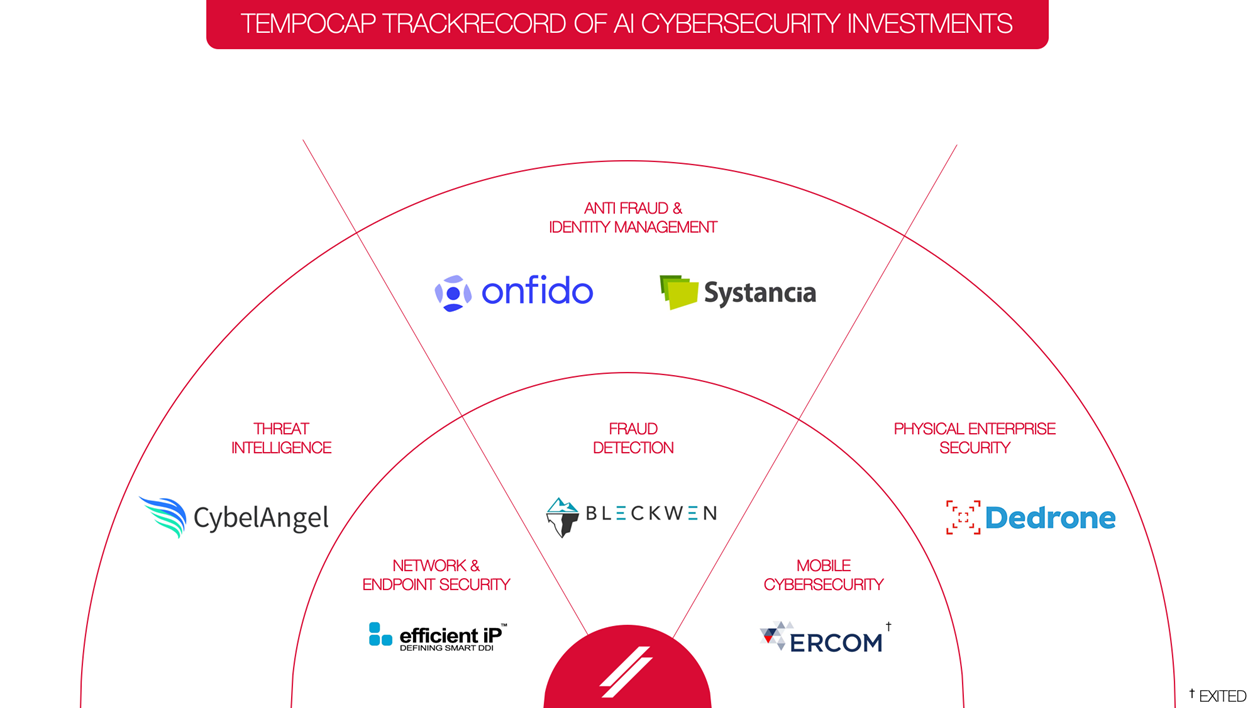Building a chain of trust and eliminating risks in a crisis
Back in May, we looked at how, in the initial chaos and uncertainty of COVID-19, cybercriminals took every opportunity to exploit the situation. Increasing ransomware attacks, businesses involved in constructing temporary hospitals under threat, even the World Health Organization itself reported a five-fold increase in attacks directed at its staff.
It was a frightening time, but also one that saw a number of companies step up to offer new ways to defend against ever more sophisticated threats.
Onfido, CybelAngel, and EfficientIP were three of the market-leading companies we highlighted as part of our portfolio. Their efforts challenging the status quo have put them at the forefront of delivering a paradigm shift across the global security landscape. The fact that between them, they had collectively raised $147m in the six months leading up to May 2020 underlined how the market supported their vision, ambition, and ability to solve major challenges.

But where is that market now? After nearly a year of lockdowns, of false hopes and confusion surrounding lockdowns, restrictions and vaccines, how have the cyber threats evolved, and how has the security sector responded in kind?
One of the most notable attacks came towards the end of the year, when hackers used SolarWorks networking solutions to access a vast array of different entities, including US federal agencies. What was particular shocking for many was how it used SolarWorks’ role as a supplier to gain access, highlighting how organisations have to trust in their partners and vendors’ own security measures, as well as having their own. As the SolarWorks hack indicates, this can be a risk.
It’s therefore unsurprising that one survey found that more than 50% of security leaders in the UK and Ireland admitted their organisations experienced some form of cyber-attack in 2020, with more than 60% concerned that they are at risk of attack this year.
Of course, everyone is aware of what happens if those attacks are successful. Aside from the potential impact on business operations and the loss of customer trust, there is also the looming threat of General Data Protection Regulation fines. With the third anniversary of the introduction of the legislation on the horizon, one report noted that regulators had imposed fines of €272.5m (£242.6m/$330.5m) to date, including €158.5m in 2020.
Put simply, threat prevention is still very much on the agenda for organisation of all sizes, and with many having to manage and secure largely remote workforces, defending against sophisticated attacks is not getting any easier.
That’s why the likes of Systancia, an application virtualisation and private network access solution, and the aforementioned CybelAngel continued to attract interest from across the market.
Creating an end-to-end chain of trust
Systancia offers companies an access platform that secures the user in their work environment. That means that wherever an employee is, they can use the applications they need to do their job, without compromising corporate networks or sensitive data.
To do this, Systancia’s solutions cover Virtual Desktop Infrastructure (VDI), external access security/Zero Trust Network (ZTNA), Privileged Access Management (PAM), Single Sign-On (SSO) and Identity and Access Management (IAM). While there are a number of established players in these markets, none offer a joined-up service. This comprehensive range of services means Systancia is delivering a true end-to-end chain of trust, limiting the number of vendors enterprises need to engage with in order to secure their remote working platforms.
More than 500 customers across financial services, retail, government and other industries rely on Systancia’s expertise, while it has also been recognised as a Representative Vendor of Stand-Alone ZTNA in the Market Guide for Zero Trust Network Access published by Gartner in June 2020. It also helped businesses at the beginning of the pandemic with their transition to remote working by making Systancia Gate, its teleworking solution, free of charge, a move supported by the French Secretary of State for Digital.
How CybelAngel’s ability to detect and eliminate risks is reaching an audience in 2021
Systancia is not the only company in our portfolio to have been recognised by Gartner in the past year. CybelAngel, which detects if customers’ sensitive information leaks outside of their networks, was named a sample provider in the analyst’s Emerging Technologies and Trends Impact Radar: Security report, under Digital Risk Protection Services.
As we noted back in May, the pandemic has pushed cybersecurity risk management professionals to seek out practical solutions both on a micro-level and a macro level. In many ways, the pandemic is the latest in a line of events highlighting how organisations are not properly set up to manage risk, especially fast-moving ones.
CybelAngel combines leading scanning technology, artificial intelligence and targeted human analysis enabling it to monitor the entirety of the internet for business data leaks and digital threats. Its Enterprise customers come from a broad range of industry verticals, but all are using the company’s solutions to identify where any leaks come from, rapidly take down exposed information and immediately alert stakeholders to protect IP.
Moreover, as traditional vulnerability scanning solutions don’t protect businesses from attacks on shadow assets, CybelAngel has expanded its platform and recently launched a unique IT Asset Discovery & Monitoring solution to let its customers prevent the risks of the emergence of a Shadow IT and gain an attacker-view of their external-facing shadow environment.
Supporting businesses making a demonstrable difference
The likes of Systancia, CybelAngel, Onfido and EfficientIP offer different solutions to the major threats organisations face, but they all exhibit what TempoCap looks for in an investment: ambitious businesses, defined by cutting edge technology solutions and great leaders, that are executing at pace, and that we believe will make a difference to the world.
In spite of the continued disruption and uncertainty the world faces, it is truly exciting to be involved with these agenda-setting companies in the early stages of what promises to be long and fulfilling journeys.




